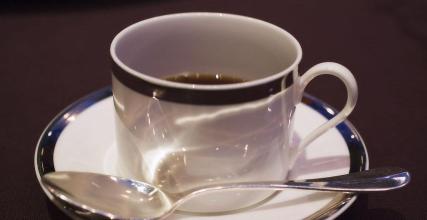A brief introduction to the cultivation of sweet Sidamo boutique coffee beans, geographical location, climate and altitude

Production area: Sidamo
Main varieties: Native Arabica, Bourbon, Typica, Others
Harvest period: October-February
Planting height: 1400m--2000m
Grade: G1, G2, G3, G4, G5
Processing method: tanning type
Aroma characteristics: Aroma, Acidity,Body,Aftertaste
Recommended baking degree: City, City+
The Sidamo producing area is located in southern Ethiopia, extending to the districts of Arsi and Bale in the east and Gamogofa in the west, where agriculture is the main industry, and coffee is mainly grown around the Great Rift Valley (Great Rift Valley) of East Africa. The largest town in Sidamo is Hawassa, which has developed rapidly in recent years. Many modern restaurants and hotels have been set up, and it is also an important distribution center for coffee exports. Cedamo's coffee flavor is very diverse, different soil types, microclimate and countless native coffee species, resulting in obvious differences and characteristics of coffee produced in each town Alina is a G3 grade sun Sidamo, raw bean has the protection of GrainPro plastic bags to ensure that it is full of aroma, as soon as the bag is opened is absolutely amazing The aroma of thick sorghum wine mixed with fruit wine continues to blow to the nostrils, which is a rare good bean to feel immediately!
Due to the high grade and low defect rate, the medium and shallow roasted aromas are full and rich, with blueberry, red berry, cherry and citrus aromas as the main aromas, fermented fruit aromas and wine aromas as the end rhyme, sweet and sour, rich and charming and interesting.
Light-baked Yirgacheffe, roast over low heat for 15 minutes, turn off the heat and glide for half a minute, then cool the beans and blow off the silver skin. The coffee beans are roasted evenly (because the raw beans are washed and clean) and brown. When using hand coffee grinding, it feels good, smooth and moderate resistance. The dry aroma of coffee powder was a little earthy at first, and then there was a strong, introverted aroma. After brewing, the wet fragrance has obvious orange fruit aroma, and some sour and sweet taste similar to Hawthorn and fruit peel. On the mouth, the taste is a little thin and balanced, with a faint and mild sour taste, rich in oil and long-lasting foam.
Bake the medium-deep baked Yirgacheffe over low heat for 17 minutes, turn off the heat and glide for half a minute, then cool the beans and blow off the silver skin. there is a slight oil on the surface of the coffee beans and the beans are black and brown. Beans are very light, the resistance when using hand coffee grinding is very small, and it is not easy to drop beans. The dry aroma of coffee powder has a strong scorched fragrance and a faint smell of African soil. After brewing, the wet fragrance has a good burnt fragrance, and after deep baking, it seems to have completely lost the regional characteristics of the orange flavor. But after the coffee is sipped, it is full-bodied, fragrant and varied, the gentle sour, bitter and astringent are all well reflected, the texture is thick, the viscosity is better than shallow baking, and the finish is long.
The unique fragrance of Yirgacheffe comes from Yirga, a small town in the northwest of Sidamo province.
The fragrance of the fruit is the most obvious, mixed with a hint of tea, and no bitterness can be found in the taste. In addition, due to the sun-treated beans, there is a special aroma left during fermentation, or wine aroma. It is very similar to the aroma of the Bali organic bean, but it is not as obvious as Bali to check the relevant information to understand that the quality of this bean is better. So the general principle is to be as shallow as possible, let the characteristics of the bean show, so eventually stop baking at the end of an explosion. The uniformity of beans is slightly lower, much like the baking state of Ethiopian sun-dried beans, because the baking is relatively shallow, so there are still many beans whose silver skins do not fall off completely, and there is a lot of difference between them and many Central and South American stature. But Ethiopian beans are not known for their beautiful appearance, but for their beautiful taste (here, I can only use beauty to describe Ethiopian beans, synaesthesia rhetoric, ).
Yirgacheffe coffee raw bean is one of the most distinctive coffee in the world, rare and expensive. It is produced in the plateau of Ethiopia's Sidamo province (2000 meters above sea level). It is an outstanding representative of washed coffee in Africa. It has always been famous in the eyes of global coffee connoisseurs. Rare washed high-quality Elaraby plus coffee, suitable for all degrees of baking, perfectly showing a fresh and bright aroma of flowers and fruits. Beautiful and complete bean shape, is the general mocha incomparable high-grade coffee. It has unique fruit aromas of citrus and lemon, with aromas of jasmine, sour taste similar to wine, clean and unmixed taste, just like freshly boiled citrus fruit tea with a long finish. Full of floral and citrus aroma, the performance is exciting, moderate roasting has a soft sour taste, deep roasting gives off a strong aroma, rich and uniform taste is the most attractive feature of Ethiopian Yega snow coffee, known as the best coffee beans in Ethiopia, is the representative of East African boutique coffee, and Yega snow coffee is the most unique coffee in the world today.
Important Notice :
前街咖啡 FrontStreet Coffee has moved to new addredd:
FrontStreet Coffee Address: 315,Donghua East Road,GuangZhou
Tel:020 38364473
- Prev

A brief introduction to the market price of rare and expensive Sidamo boutique coffee beans
The Sidamo producing area is located in southern Ethiopia, extending to the districts of Arsi and Bale in the east and Gamogofa in the west, where agriculture is the main industry, and coffee is mainly grown around the Great Rift Valley (Great Rift Valley) of East Africa. The largest town in Sidamo is Hawassa, which has developed rapidly in recent years. Many modern restaurants and hotels have been set up.
- Next

A brief introduction to the treatment method of grinding degree and baking degree of Sidamo boutique coffee beans with refreshing characteristics
Yirgacheffe coffee raw bean is one of the most distinctive coffee in the world, rare and expensive. It is produced in the plateau of Ethiopia's Sidamo province (2000 meters above sea level). It is an outstanding representative of washed coffee in Africa. It has always been famous in the eyes of global coffee connoisseurs. Rare washed high quality Elaraby plus coffee is suitable for all degrees of roasting.
Related
- Detailed explanation of Jadeite planting Land in Panamanian Jadeite Manor introduction to the grading system of Jadeite competitive bidding, Red bid, Green bid and Rose Summer
- Story of Coffee planting in Brenka region of Costa Rica Stonehenge Manor anaerobic heavy honey treatment of flavor mouth
- What's on the barrel of Blue Mountain Coffee beans?
- Can American coffee also pull flowers? How to use hot American style to pull out a good-looking pattern?
- Can you make a cold extract with coffee beans? What is the right proportion for cold-extracted coffee formula?
- Indonesian PWN Gold Mandrine Coffee Origin Features Flavor How to Chong? Mandolin coffee is American.
- A brief introduction to the flavor characteristics of Brazilian yellow bourbon coffee beans
- What is the effect of different water quality on the flavor of cold-extracted coffee? What kind of water is best for brewing coffee?
- Why do you think of Rose Summer whenever you mention Panamanian coffee?
- Introduction to the characteristics of authentic blue mountain coffee bean producing areas? What is the CIB Coffee Authority in Jamaica?

